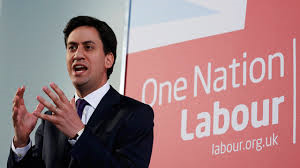 The revolving door at the top of the Australian Labor Party continues to spin, with ex-Foreign (and Prime) Minister, Kevin Rudd, challenging the current Prime Minister, Julia Gillard, for her job on Monday morning. Three things are notable about this challenge: its speed (Rudd formally announced his intention to stand on 24th February and the ballot will be held on the 27th); its ferocity (military metaphors like ‘mutually assured destruction’ scarcely seem overblown); and the fact that Rudd was ousted from the PM job only twenty months ago.
The revolving door at the top of the Australian Labor Party continues to spin, with ex-Foreign (and Prime) Minister, Kevin Rudd, challenging the current Prime Minister, Julia Gillard, for her job on Monday morning. Three things are notable about this challenge: its speed (Rudd formally announced his intention to stand on 24th February and the ballot will be held on the 27th); its ferocity (military metaphors like ‘mutually assured destruction’ scarcely seem overblown); and the fact that Rudd was ousted from the PM job only twenty months ago.
Ms Gillard should win convincingly. Although 58% of Australians think that Rudd would make a better leader, Gillard’s parliamentary colleagues support her by a ratio of two to one. Mr Rudd’s deep unpopularity amongst his closest colleagues speaks to the reason he was ousted in the first place: he is is, apparently, almost impossible to work with. This raises some interesting questions about how parties choose their leaders.
Under the caucus system, used by both the Labour and Liberal parties in Australia, launching a leadership challenge is straightforward. MPs put their names forward, and their Senate and House colleagues hold a vote. Under this method, the Australian Labor Party has had five leaders in the last ten years, despite having governed the country for half of this time. The opposition Liberal Party has burned through four different leaders during the same short period.
Since the ALP caucus chooses its leader behind closed doors, there should be no need to wash the party’s dirty linen in public. However, as any Australian who has dared to switch on their television over the last few days will tell you, it doesn’t quite work that way. The twenty-four hour news media has been been dominated by deeply personal attacks from both sides, roughly summarised as:
Rudd camp about Gillard – “She’s a loser.”
Gillard camp about Rudd – “He’s a disorganised megalomaniac.”
Meanwhile, the Queensland Labor Party looks on, astonished that Rudd, a ‘native son’, could not postpone his long-planned revenge against Gillard until after their state election campaign. Despite Australia’s high level of political decentralisation, no-one outside the caucus in Canberra has any say in the Federal leadership contest. Many wonder if there is not a better way of selecting, and then sticking with, a leader.
In other advanced democracies, parties typically adopt more inclusive ways of choosing their leaders. For example, major parties in the United Kingdom involve their members in leadership votes. To avoid choosing a leader that is unacceptable to the parliamentary party, members are presented with a ‘shortlist’ of candidates nominated by MPs. The process of choosing a new leader usually takes a couple of months, and may involve public unpleasantness. However, the end result is almost always regarded as legitimate, and the cumbersome nature of the process discourages frequent leadership challenges. It is not uncommon for UK party leaders to remain in their posts for ten years.
The United States’ presidential system has a very different dynamic. Through a gruelling set of public primaries and caucuses, presidential candidates are chosen according to a set timetable. This ensures that candidates are tested to destruction before they take the top job and, having won that position, they are almost never deposed until they have either served two presidential terms or lost a presidential election. However, the selection process is expensive and time consuming, involving a prolonged period of ‘friendly fire’ before attention is finally turned to the opposition.
There is no foolproof way to choose a party leader, and what really matters is that vanquished candidates accept their defeat under the current rules. This seems unlikely in Kevin Rudd’s case. He claims legitimacy as the man who led Labor to a convincing victory in 2007 under the highly personalised slogan ‘Kevin 07’. Lacking the self-awareness to acknowledge that he was a better campaigner (and, indeed Foreign Minister) than Prime Minister, he even refers to his 2010 overthrow as ‘the coup’. The ALP caucus was probably too quick to remove Rudd back in 2010 – deposing him so ruthlessly was bound to cause bitterness, and this has dogged the Gillard administration from the start – but the clock cannot be turned back.
Rudd has sought to turn Monday’s leadership contest into an American style primary by asking the general public to contact their elected representatives in support of his comeback. In doing so, he highlights the paradox of the current system, which is that popularity amongst his close colleagues matters more than public opinion. Ironically, anecdotal evidence suggests that, bemused by Rudd’s lack of team spirit, many Labor supporters have contacted their MPs in support of Gillard.
Regardless of who wins on Monday, leadership instability is a problem that both of Australia’s main parties must resolve. It is, perhaps, time to re-write the rules of leadership contests, widening participation to make them more cumbersome and, as a result, more decisive.





1 Comment
I think that is one of the so much important info for me. And i’m glad reading your article. But wanna commentary on some common issues, The site style is wonderful, the articles is in reality excellent : D. Excellent process, cheers